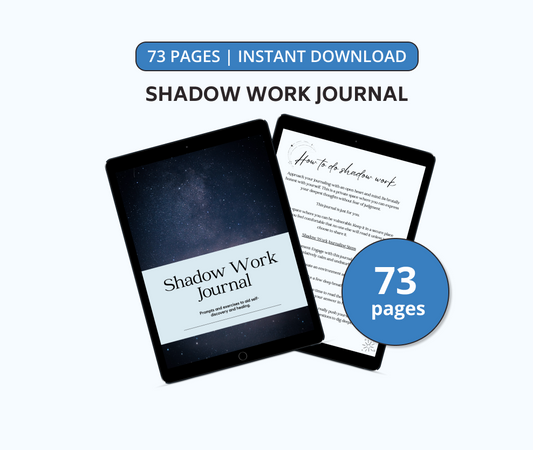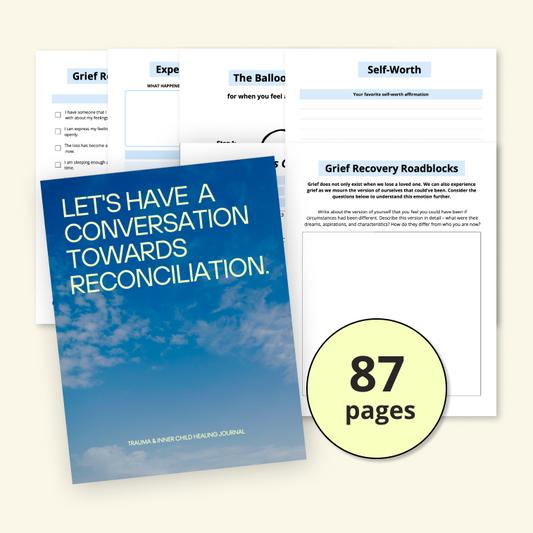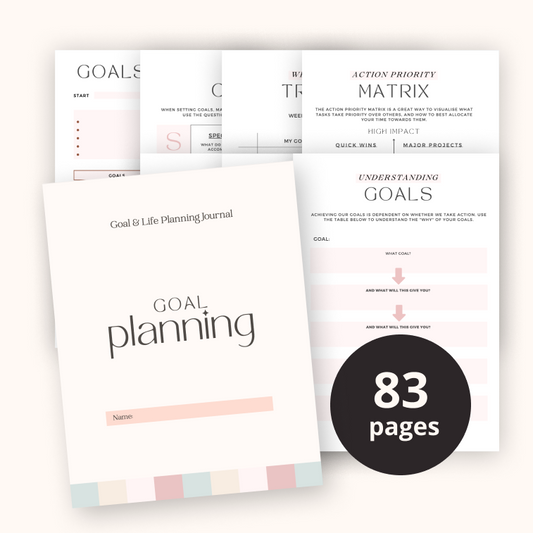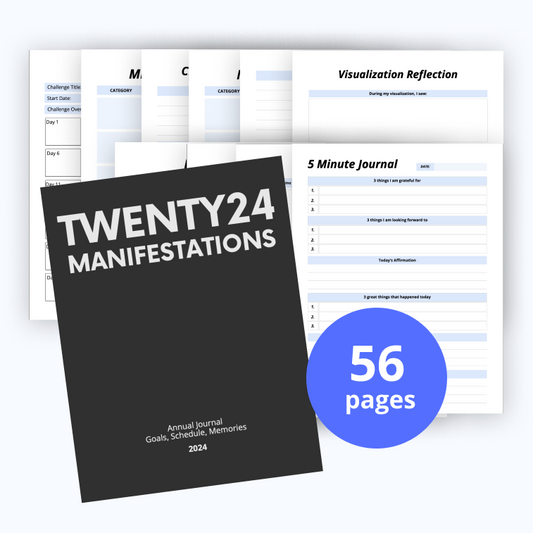Struggling with panic disorder can feel like you’re caught in an unending storm, with emotions swirling chaotically. You’ve likely been seeking tools to navigate these turbulent waters and stumbled upon the power of journaling. But, where do you start?
Imagine flipping open your journal and finding the perfect prompts that guide you through your thoughts, helping to unravel the tangled web of anxiety. We’re about to dive into a treasure trove of prompts designed to do just that.
Stay tuned, because you’re about to discover how the simple act of writing can become your secret weapon in the battle against panic disorder. Let’s embark on this journey together, one prompt at a time.
Benefits of Journaling for Panic Disorder
When your heart’s racing and your thoughts are crowded with ’what-ifs,’ grabbing a pen might not be your go-to solution—but it should be! Journaling can be a total game-changer for tackling panic disorder. It’s like having a conversation with your brain, helping you to recognize triggers and explore your feelings in a safe, controlled environment.
Imagine having a personalized guide—one that knows all your stressors and soothes you with the right words. That’s what your journal becomes. Self-awareness skyrockets; you’ll start picking up on the nuances of your moods and reactions. Plus, it’s incredibly empowering to track your progress over time. You’ll see, in your writing, how much you’ve grown and coped.
Journaling also boosts your problem-solving abilities. When panic strikes, it can turn your thoughts into an unsolvable puzzle. By writing down these worries, you might just find the pieces coming together in ways you hadn’t expected. It’s like untangling headphones; patience and persistence pay off.
Let’s dive into those prompts. Think of them as your toolkit for defusing anxiety bombs before they go off. Here we go:
- When do I feel most calm and why?
- What’s a small victory I had today?
- List five things I’m grateful for right now.
- Describe a place where I feel completely safe.
- What are three strengths that help me cope with panic?
- Write a letter to my panic, explaining how it affects me.
- What would I say to a friend experiencing a panic attack?
- Identify a trigger and explore ways to manage it.
- How did I overcome a challenging moment this week?
- What does my ideal support system look like?
- Reflect on a time when panic was absent. What was different?
- Sketch out a step-by-step self-care routine for tough days.
- Who can I reach out to when I feel a panic attack coming on?
- List 10 things that make me smile or laugh.
- Write about a goal I achieved despite my panic disorder.
- How can I show myself compassion when anxiety hits?
- Recall an instance when I felt in control during anxiety.
- What are signs that a panic attack may be starting, and how can I intercept them?
- Visualize a day without panic. What activities would I enjoy?
Understanding Panic Disorder
Living with panic disorder can feel like you’re on an emotional roller coaster that’s tough to get off. Panic disorder is characterized by sudden and intense episodes of fear or discomfort often accompanied by physical symptoms like a racing heart, sweating, trembling, and a fear of losing control. You’re not alone in this; many people experience these challenging episodes.
The physical symptoms are often so intense that they’re mistaken for heart attacks, which only adds to the distress and anxiety surrounding such events. If you’re struggling to make sense of these whirlwind experiences, remember that understanding is the first step to regaining your control.
Journal Prompts to Navigate Your Journey
Journaling isn’t just about keeping a diary. It’s about exploring your inner world, one word at a time. Choosing the right prompts can transform your journal into a powerful tool for self-discovery and healing. Here are some prompts to help you start that journey:
- What were you doing right before your last panic attack?
- List all physical sensations you recall feeling during an episode.
- Did anything specific trigger your panic? Reflect on what it could have been.
- Write down what thoughts raced through your mind at that moment.
- Imagine a safe space. What does it look, smell, and feel like?
- Reflect on what self-care strategies seem to help when you’re anxious.
- Record a quote that inspires courage in you.
- Describe a situation where you felt panic-free and engaged.
- Think about a person who calms you down and write about their qualities.
- Write a letter to your panic disorder, expressing whatever you feel.
- When do you feel most at peace? Dive into the details.
- Create a step-by-step self-care routine for days when you feel a panic attack might be coming.
- What’s one thing you’d tell your younger self about coping with panic?
- Craft a visualization where you overcome a panic attack effortlessly. What strategies did you use?
- Recall a time you were able to manage panic well. What worked?
- Note down three things you’re grateful for today.
- What are your strengths in dealing with challenges?
- How do you feel after a panic attack has passed?
- Write about how panic disorder has shaped your perspective on life.
- Ponder on how you might comfort a friend with panic disorder.
How Journaling Can Help with Panic Disorder
Discovering the power of the written word could be your new superpower in managing panic disorder. Picture a safe space where you can unload your thoughts, untangle your feelings, and spot those pesky patterns that lead to panic attacks. That’s the magic of journaling! As you tip-toe through your mind with a pen as your guide, you’ll begin to see things more clearly.
Let’s be real: Panic disorder can sometimes feel like you’re living your life with an unpredictable storm cloud overhead. But by keeping a journal, you’re effectively building a weather station to predict and prepare for those storms. Recognizing your triggers becomes a breeze and, oh, the relief when you start seeing progress over time. It’s like having a chat with your inner self, and trust us, your inner self has some wise things to say.
By reflecting on your experiences, your journal becomes a guardian of your personal history—reminding you of how far you’ve come and the strategies that work best for you. Plus, it’s a judgment-free zone where you can practice self-care and self-compassion without any reservations.
Step into the Wholesome world with these handpicked journal prompts designed to make your journey as smooth as peanut butter:
- List down what self-care looks like on your good days and bad days.
- Describe a place that makes you feel calm and why it has that effect on you.
- Record any physical sensations you experienced during your last panic attack.
- Detail what a day without panic would look like for you.
- Enumerate what activities or hobbies bring you joy and why.
- Reflect on the coping strategies that have been effective for you.
- Note the thoughts that tend to precede a panic attack.
- Observe any patterns in the times of day when your anxiety peaks.
- Revisit a recent panic episode and list what you could’ve told yourself.
- Contemplate how your life has changed since recognizing your panic disorder.
(Continue the list up to 20 prompts)
Finding the Right Journaling Prompts
Embarking on your journaling journey can be as thrilling as it is therapeutic, especially when you’ve got the right prompts to pour your heart into. At Wholesome, we know that the prompts you choose can act like a key, unlocking parts of your consciousness and illuminating the path to self-discovery.
Embrace Prompts That Resonate: Not every prompt will fit your need, and that’s ok. You’re on the lookout for those golden questions that spark a light in you. Once you find the prompts that really resonate, you’re ready to dive deep and explore the oceans of your thoughts.
Journal Prompts to Explore Your Inner World:
- What exactly did I feel during my last panic attack?
- How did my body react, and what were those physical sensations?
- What were the thoughts running through my mind just before it began?
- If my anxiety were a weather system, what would it be and why?
- Which self-care strategies have worked for me, and which haven’t?
- Write a letter to your panic. What do you want to say?
- Describe a place where you feel calm and safe. Why does it make you feel this way?
- What are three things I’ve accomplished today, no matter how small?
- What is a fear I faced today, and how did I handle it?
- Reflect on a time when you overcame a particularly challenging day.
- When do I feel most in control of my life?
- What are my triggers and what patterns have I noticed?
- List five things I am grateful for right now.
- Imagine a day without panic. What does it look like?
- What are some affirmations that could help me in times of anxiety?
- How does it feel to breathe deeply and slowly?
- What can I learn from my last panic attack?
- How would I comfort a friend experiencing panic, and can I offer that to myself?
- What are my goals for my mental health this week?
- Envision myself in a calm state – what am I doing differently?
Journaling Prompts for Panic Disorder
Embarking on your journaling journey can be a sanctuary for your thoughts and emotions, offering you solace as you navigate the twists and turns of panic disorder. Journeying inward through writing can reveal patterns and insights you may not have noticed before.
With your favorite pen in hand, dive into these prompts crafted to comfort and explore the depths of your mind. Let’s unfold your experiences, uncover hidden strengths, and start stitching a tapestry of self-awareness and recovery.
- What sensations told you a panic attack was approaching today?
- Reflect on what you were doing right before you felt anxious. Are there any patterns?
- List five things you can see and describe why they’re comforting during a panic attack.
- Jot down a memory where you felt completely at ease. What made it special?
- If your panic had a message, what would it be trying to tell you?
- Describe the place you feel safest. What details make it so secure?
- What self-care strategies have worked for you in the past? Any you’d like to try?
- Write about someone who understands your struggle. How do they support you?
- Imagine your life without panic disorder. What’s the first thing you do?
- What are three mantras that help silence your anxiety?
- Detail a step-by-step plan for the next time panic strikes. What will you do?
- Record a recent success, no matter how small, in managing your panic symptoms.
- Pen a letter to your panic. Confront it, forgive it, or try to understand it.
- Share how your ideal support system would look and operate.
- What does a day filled with self-compassion look like to you?
- Identify a trigger you’ve conquered and celebrate your victory.
- Recall a moment you felt in control during a panic attack. What did you do right?
- Envision how you might feel in six months. What changes do you see?
- Explore your five senses. Write about how you can use them to ground you.
- Describe the words you wish to hear when panic envelops you.
Conclusion
Harnessing the power of journaling can be a game-changer in your journey to manage panic disorder. With the right prompts, you’re equipped to delve deeper into your experiences, uncover patterns, and foster a greater sense of control over your emotions. Remember, it’s all about finding what resonates with you. So take these prompts, make them your own, and watch as they help light the path toward a calmer, more centered you. Keep exploring, keep writing, and keep growing. Your mental health journey is uniquely yours, and every word you write is a step forward.




